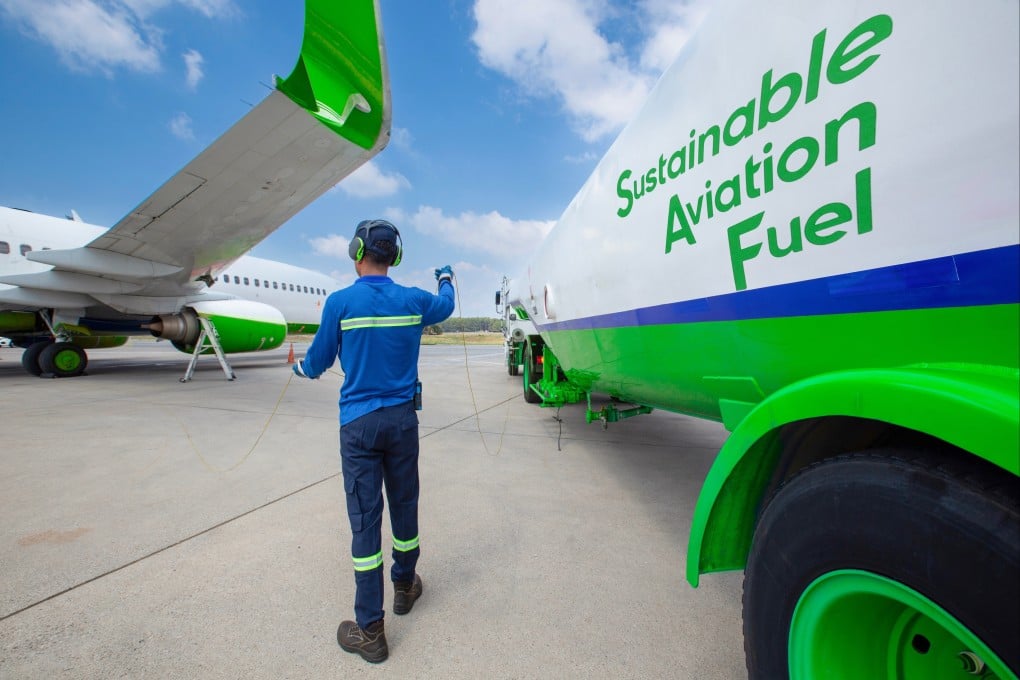Opinion | Sustainable fuel critical to Hong Kong’s global aviation hub status
Emissions from aviation are growing rapidly, and Hong Kong needs a comprehensive plan to mainstream sustainable aviation fuel use

The use of sustainable aviation fuel is still limited worldwide, making up just 0.2 per cent of global jet fuel use in 2023. Even so, it is regarded as one of the most crucial pathways for the aviation industry to achieve its carbon neutrality target by 2050.
The International Air Transport Association estimates that 65 per cent of the required carbon reduction to achieve carbon neutrality can be realised through sustainable aviation fuel. Other advanced technologies, like hydrogen fuel cell engines, could reduce emissions by 13 per cent, and efficiency measures could contribute an additional 3 per cent. The industry must adopt innovative energy and efficiency strategies to complete the shift towards greener aviation.
Hong Kong needs a comprehensive plan to incorporate, mainstream and enhance sustainable aviation fuel use in the aviation sector to reach the industry’s goal of carbon neutrality. Singapore, Hong Kong’s primary competitor in this sector, is already implementing such a plan.



